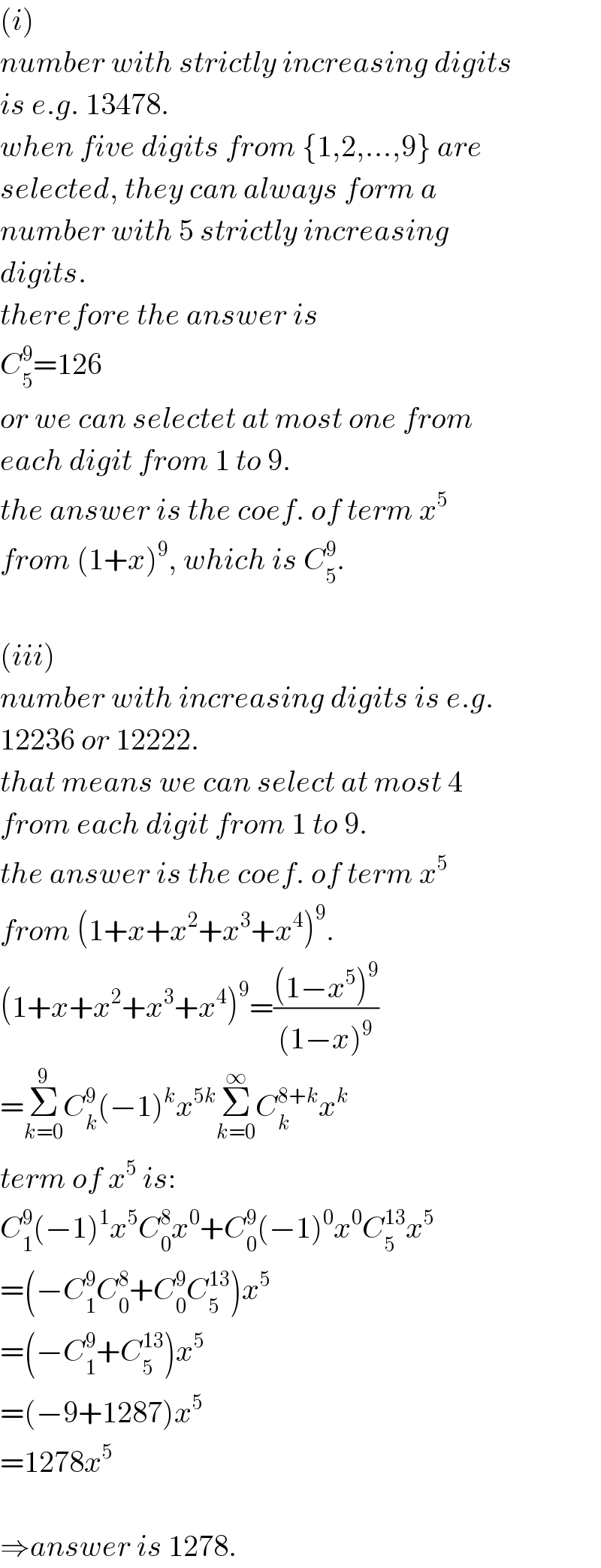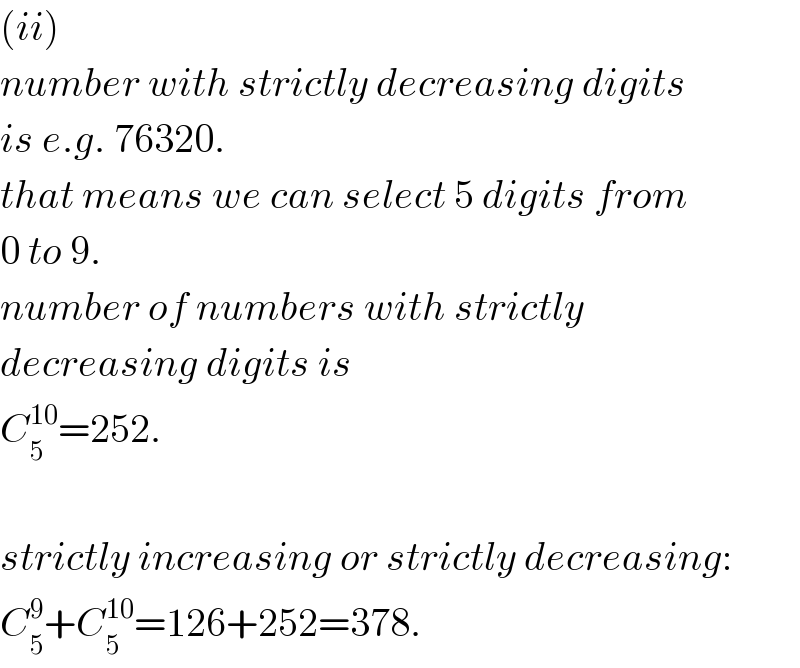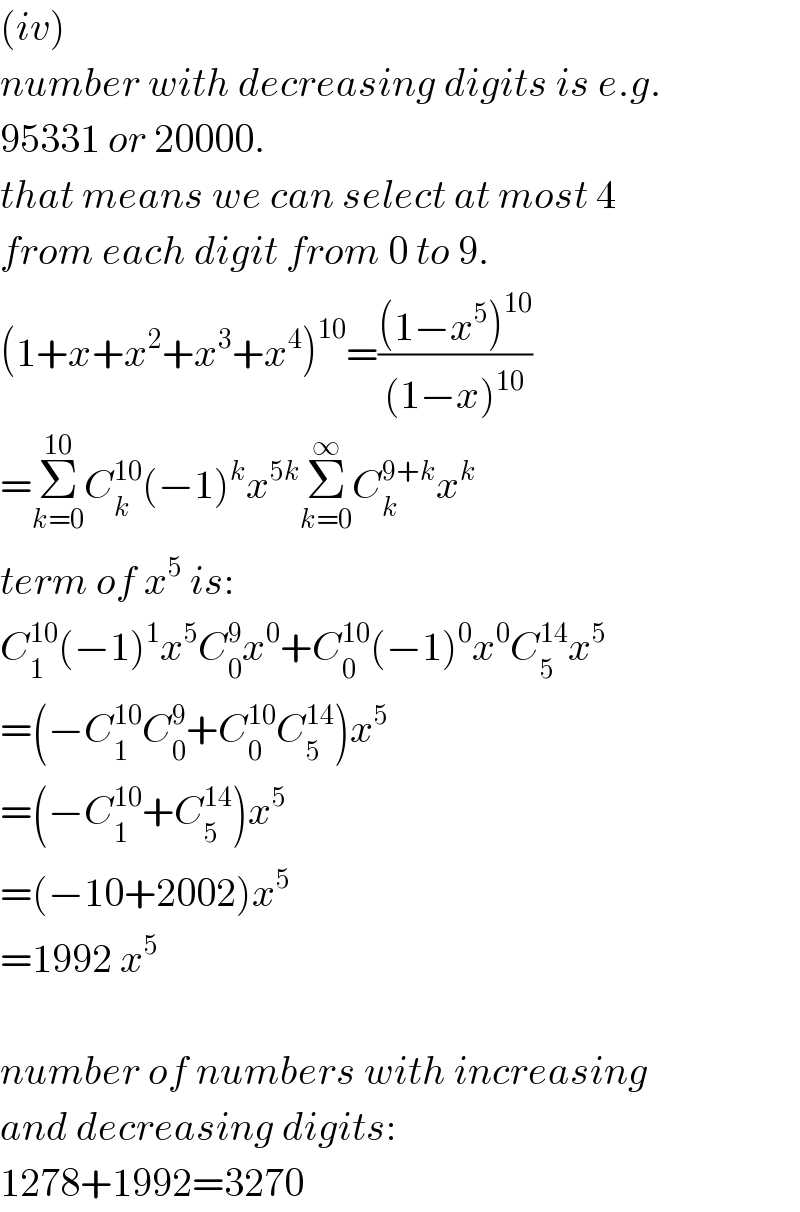
Question and Answers Forum
Previous in Permutation and Combination Next in Permutation and Combination
Question Number 57042 by mr W last updated on 29/Mar/19

Commented by mr W last updated on 29/Mar/19

Answered by mr W last updated on 31/Mar/19

Commented by mr W last updated on 31/Mar/19

Commented by mr W last updated on 31/Mar/19

